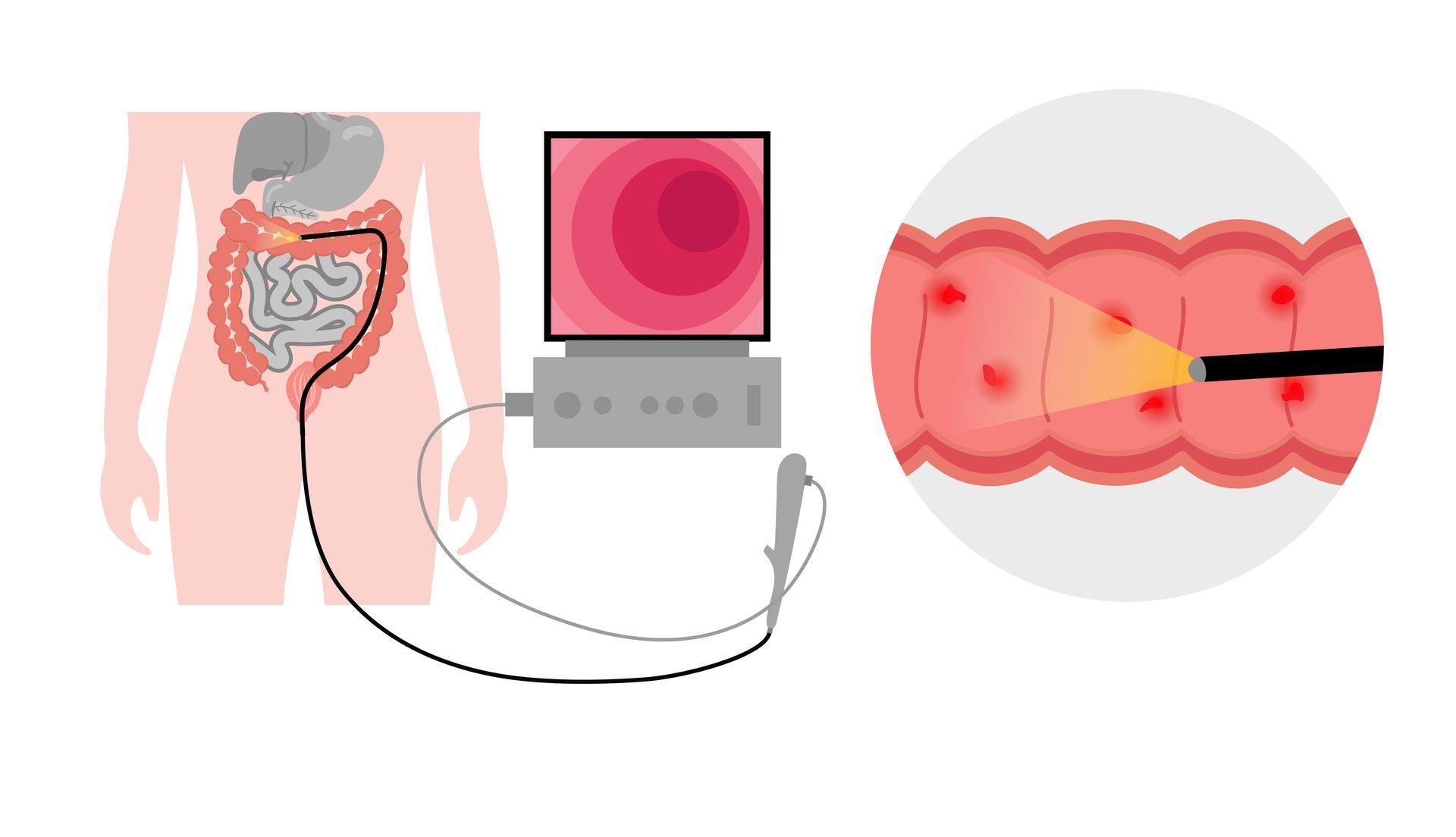Don't Call Christina Later, Call Christina Now
Follow us
The Importance of Regular Health Screenings and Legal Preparedness: Colonoscopy, Breast Exam, and Creating a Trust or Will
Why Regular Health Screenings and
Legal Planning Are Crucial for Your Future

As we navigate life, it’s essential to take proactive steps toward maintaining our health and ensuring our loved ones are cared for in case of an emergency or unexpected event. Regular health screenings, such as colonoscopies and breast exams, are crucial for early detection of potential health issues. Additionally, creating a trust and will can provide peace of mind, knowing that your wishes will be followed and your loved ones will be protected. In this blog, we’ll discuss the importance of these health screenings and legal preparations, and how they can help you live with confidence and security.
Colonoscopy: A Vital Step in Preventing Colon Cancer
Colon cancer is one of the most common cancers in the United States, but it is also one of the most preventable forms of cancer when caught early. According to the American Cancer Society (ACS), over 104,000 new cases of colon cancer are expected in the U.S. in 2024. One of the most effective ways to detect colon cancer early is through a colonoscopy, a procedure that allows doctors to examine the colon and rectum for

Why Should You Get a Colonoscopy?
- Early Detection Saves Lives: Colonoscopies can detect abnormalities like polyps, which may eventually become cancerous. The American Society of Clinical Oncology (ASCO) reports that if polyps are found early, they can be removed during the procedure, drastically reducing the risk of cancer.
- Screening Age: The ACS recommends that adults at average risk for colon cancer begin screening at age 45. Those with a family history of colon cancer or other risk factors may need to begin earlier. Colonoscopy screenings are typically repeated every 10 years if no abnormalities are found.
- Peace of Mind: Knowing that you’re taking the necessary steps to prevent colon cancer can provide a sense of control over your health. Early detection through a colonoscopy allows for more treatment options, better outcomes, and the possibility of a full recovery.
Why Should You Get a Colonoscopy?
- Early Detection Saves Lives: Colonoscopies can detect abnormalities like polyps, which may eventually become cancerous. The American Society of Clinical Oncology (ASCO) reports that if polyps are found early, they can be removed during the procedure, drastically reducing the risk of cancer.
- Screening Age: The ACS recommends that adults at average risk for colon cancer begin screening at age 45. Those with a family history of colon cancer or other risk factors may need to begin earlier. Colonoscopy screenings are typically repeated every 10 years if no abnormalities are found.
- Peace of Mind: Knowing that you’re taking the necessary steps to prevent colon cancer can provide a sense of control over your health. Early detection through a colonoscopy allows for more treatment options, better outcomes, and the possibility of a full recovery.

Breast Exam: A Critical Component of Breast Cancer Detection
Breast cancer remains the second most common cancer among women in the U.S., with over 290,000 new cases expected in 2025, according to the American Cancer Society (ACS). Early detection through breast exams, including self-exams and clinical screenings, is essential in identifying potential signs of cancer before it spreads, helping to save lives.

Why Are Breast Exams Important?
- Self-Exams: Performing regular self-breast exams can help women become more familiar with their bodies and detect changes such as lumps, changes in breast tissue, or skin changes. While self-exams alone cannot detect all types of breast cancer, they are an important tool for early detection. According to the National Breast Cancer Foundation (NBCF), about 40% of diagnosed breast cancers are first found by women who notice changes in their own breasts.
- Clinical Exams: A clinical breast exam performed by a healthcare provider should be part of routine medical check-ups. Women should start having these exams every year beginning at age 40, as recommended by the American College of Obstetricians and Gynecologists (ACOG). Clinical exams help identify signs that might be missed in self-exams.
- Mammograms: Alongside self-exams and clinical exams, mammograms are an essential screening tool for women over 40. The U.S. Preventive Services Task Force (USPSTF) recommends that women aged 50 to 74 have a mammogram every two years. These screenings have been shown to reduce the death rate from breast cancer by up to 40%.
Trust and Will: Preparing for the Future
and Protecting Your Loved Ones
While health screenings help ensure that you’re living a long, healthy life, having a trust and will in place is equally important for protecting your assets, making sure your wishes are followed, and relieving your loved ones of unnecessary stress during difficult times. A trust and will are legal documents that dictate how your property and assets will be handled after your death, and they provide a legal framework for guardianship of children or dependents.
Why Do You Need a Trust and Will?
- Peace of Mind for You and Your Family: A will ensures that your estate is distributed according to your wishes. Without a will, your assets may be distributed based on state law, which may not align with your intentions. A trust, on the other hand, helps manage your assets during your lifetime and can provide for loved ones after your passing without the need for probate.
- Healthcare Decisions: In addition to asset distribution, a trust and will can also specify important decisions such as healthcare directives or appointing someone to make medical decisions on your behalf if you become incapacitated. Having a clear directive can prevent confusion and stress for family members during difficult times.
- Avoiding Probate: A trust can help you avoid the lengthy and expensive probate process, which can take months or even years to resolve. By setting up a living trust, you can transfer your assets to your beneficiaries directly, ensuring a smoother transition.
- Supporting Minor Children: If you have children or dependents, a will allows you to designate guardianship, ensuring that your children are cared for by someone you trust. Without a will, the courts may decide who will care for your children, which can be a long and stressful process for the family.
Why Do You Need a Trust and Will?
- Peace of Mind for You and Your Family: A will ensures that your estate is distributed according to your wishes. Without a will, your assets may be distributed based on state law, which may not align with your intentions. A trust, on the other hand, helps manage your assets during your lifetime and can provide for loved ones after your passing without the need for probate.
- Healthcare Decisions: In addition to asset distribution, a trust and will can also specify important decisions such as healthcare directives or appointing someone to make medical decisions on your behalf if you become incapacitated. Having a clear directive can prevent confusion and stress for family members during difficult times.
- Avoiding Probate: A trust can help you avoid the lengthy and expensive probate process, which can take months or even years to resolve. By setting up a living trust, you can transfer your assets to your beneficiaries directly, ensuring a smoother transition.
- Supporting Minor Children: If you have children or dependents, a will allows you to designate guardianship, ensuring that your children are cared for by someone you trust. Without a will, the courts may decide who will care for your children, which can be a long and stressful process for the family.

Steps to Take for Health and Legal Preparedness
- Schedule Your Screenings: Make regular colonoscopy and breast exam screenings a part of your healthcare routine. Speak with your doctor about when to begin these screenings and how often you should undergo them based on your medical history.
- Discuss Family Health History: Knowing your family’s medical history can help your healthcare provider make recommendations about when to start screenings or if you need more frequent monitoring.
- Consult a Legal Professional: When it comes to creating a will or trust, consulting with an estate planning attorney is key. They can help you draft documents that align with your wishes and provide guidance on how to manage your estate.
- Review and Update Documents: Your trust and will should be reviewed and updated regularly, especially after major life events such as marriage, divorce, or the birth of children.
Maintaining your health through regular screenings like colonoscopies and breast exams, alongside preparing for the future with a well-crafted trust and will, helps ensure that you’re ready for whatever life brings. By taking these proactive steps, you protect both your health and your loved ones, giving everyone peace of mind.
Don't wait any longer—take charge of your future by scheduling your health screenings and setting up your trust and will today. Contact us to get started on securing your future and ensuring your loved ones are taken care of. Let’s work together to prioritize long, healthy lives while ensuring your family is protected for the future. Act now!
Quick & Reliable
We are available 24/7 to Guide You to Better Health.
CALL CHRISTINA NOW is here to help 24 hours a day, 7 days a week, offering free and compassionate support. When you call us, we'll listen to your concerns, understand the specifics of your accident, help you find medical care for your injuries, and connect you with a professional who can advise you on the legal aspects of your situation.
CALL CHRISTINA NOW specializes in assisting with Lawyer and Medical Accident matters. If you've been in a car, motorcycle, or truck accident—or any other kind of accident—contact us today for trustworthy support.
DISCLAIMER:
CALL CHISTINA NOW isn't a law firm and can't provide legal advice, but we can refer you to the right attorney who can.
All Rights Reserved | Call Christina Now
Copyright © Call Christina Now Offers All Rights Reserved 2025
View Our Privacy Policy | Terms & Conditions | Disclaimer
